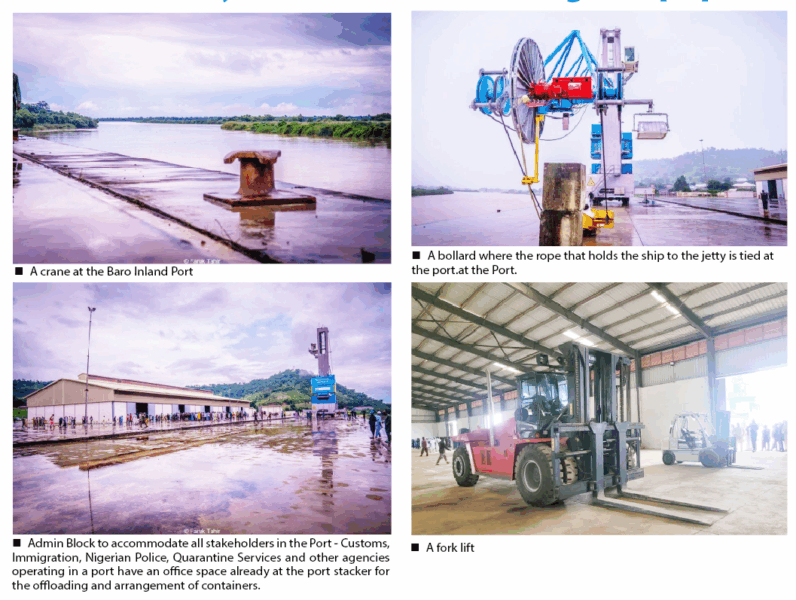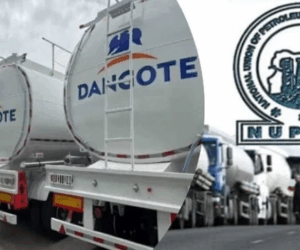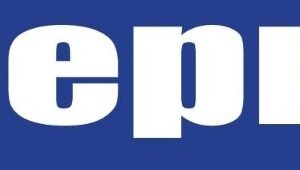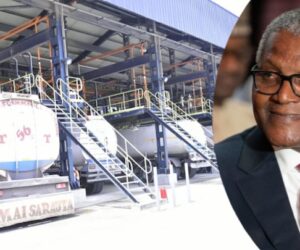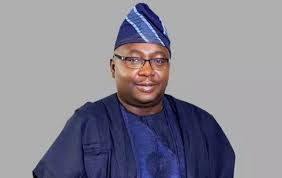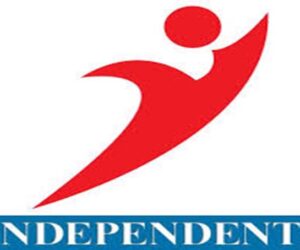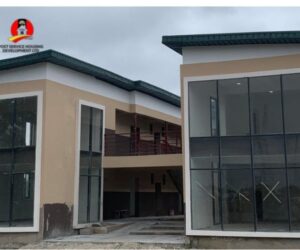The House of Representatives Ad-hoc Committee on the Rehabilitation and Operationalisation of Baro Port has identified lack of synergy among key government agencies and infrastructural deficit as the major setbacks that have hindered the operation of the multi-billion-naira inland port in Niger State.
Chairman of the committee, Hon. Saidu Musa Abdullahi, stated this when he led members of the committee on a courtesy visit to the Abuja corporate headquarters of Media Trust Group (MTG), publishers of Daily Trust, Aminiya, and owners of Trust TV, Trust Radio, and Digital Trust.
He said the visit was to seek the partnership of Media Trust Group in driving advocacy and public engagement towards making the long-abandoned multi-billion-naira inland port in Niger State fully functional.
SPONSOR AD
‘Port abandoned six years after commissioning’
Daily Trust reports that six years after it was inaugurated by former President Muhammadu Buhari, the project is yet to commence operation, raising concerns from stakeholders.
One of our correspondents had visited the facility in 2024 with no activity happening at the Port. No cargo has been lifted while a single vessel has not berthed.
“Our expectations for development are dimming by the day because, since the port was commissioned, no activities have taken place there,” Ndagana Mohammed, a Baro-based school teacher, told our correspondent then.
Mohammed said, “During construction, our environment, including farmlands, was destroyed. We made sacrifices to ensure that development came to our immediate community, but it appears that our efforts are in vain. We really don’t know what is happening.
“For over five years, the road from Agaie to Baro through Katcha has been dragging, thereby negatively impacting our economic activities, such as fishing and farming.
“We are, however, hopeful that under the current Tinubu-led government, the port will take off.”
Apart from the issue of dredging, poor road network has been the main constraint in the takeoff of the Baro port.
It was observed that accessing the facility itself has been a major headache as the road and railway networks, which should serve as catalyst to its operation, are in deplorable conditions.
There are two major roads to access the sprawling community – the 55km Baro/Katcha/Agaie and the Baro/Muye Roads linking Gegu on the Abuja/Lokoja expressway, both of which are in a deplorable state.
The federal government is said to have initially awarded the contract for the Baro/Katcha/Agaie axis in 2009 but revoked it in 2012 due to an alleged failure on the part of the contractor to deliver the job on time.
Reps committee intensifies operationalization efforts
The Reps Committee Chairman during the engagement with the MTG stressed that consensus-building among stakeholders would determine whether the project succeeds or fails.
“Our assignment is to convey stakeholders’ engagement, to discuss the challenges and prospects of Baro Inland port. And for us to be able to do it, there is no way we will leave the media out of it.
“You’re called the fourth estate of the realm, not just for mere saying. It’s because of the value that comes from this side of the divide. Our task is complex but can be very, very simple, depending on the kind of consensus we’re able to build before getting to the stakeholders’ engagement properly. Based on our work plan, we’ve had interactive sessions with major critical stakeholders, especially from the executive angle”, he said.
Abdullahi said Baro Port, commissioned in 2019 by the then late former President Muhammadu Buhari with modern cargo-handling facilities already installed, had remained dormant because ministries and agencies were working in silos instead of in unison to get the port running.
He said it was unacceptable for a port that was completed and supposedly commissioned to remain moribund six years down the line.
‘Why the port remains idle’
“Baro Port has all the necessary equipment installed and ready, yet it lies idle because of lack of synergy among critical stakeholders. Ministries and agencies have been working in silos, instead of in unison. That must change, and the media is central to making that change happen,” he said.
The lawmaker disclosed that his committee in its quest to get Baro Port back to operation, had engaged with key agencies, including the Ministry of Blue Economy, Ministry of Transport, Ministry of Works, Nigerian Railway Corporation, National Inland Waterways Authority, Bureau for Public Enterprises, and the Nigerian Sovereign Investment Authority, to break the cycle of fragmentation.
“For the first time, we are bringing all of them under one umbrella. One of the main problems that have crippled Baro is the lack of cohesion. But now, we are succeeding in mobilising everyone towards a single goal,” he said.
Abdullahi also pointed out that apart from the issue of synergy, infrastructural gaps were also worsening the problem port, noting that dredging of the River Niger, rail linkage to Minna, and access roads to the Baro Port were either incomplete or stalled due to poor funding.
“Contracts have been awarded for the rail and the three access roads, but little progress has been made because of poor funding. This is why we are saying government funding alone cannot drive Baro. We must bring in the private sector. Whoever invests in Baro will get good returns because the project is commercially viable,” he said.
According to him, the committee has been moving around the country to galvanise the support of key stakeholders towards the revival of the Baro Port.
He revealed that former Heads of State, Generals Abdulsalami Abubakar and Ibrahim Babangida, alongside traditional rulers such as the Etsu Nupe, Alhaji Yahaya Abubakar and Emir of Agaie, Alhaji Yusuf Nuhu, had thrown their weights behind the project, insisting that Baro must not fail.
According to him, operationalising the port will unlock Niger State’s massive agricultural potential, stimulate agro-processing, create jobs, boost exports, and attract new investments not only for the state by Nigeria in general.
“We’re not just talking about moving yams and rice; we want to move finished agricultural products that will create wealth and opportunities,” he said.
Abdullahi further stressed that Baro should serve as a test case for reviving other abandoned or underutilised national assets such as Ajaokuta Steel.
The lawmaker argued that funding challenges shouldn’t be a bottleneck to the operation of the port, saying private investors can be wooed to get the project running given its viability.
“But where the world is today, lack of funds, especially from the government angle, is not supposed to impede the actualisation of any major infrastructure, especially those that have direct nexus to the economic development of the country.
“There are funds readily available across the globe, depending on how you prepare your report and how bankable your project is. And it should be established that this project is viable; is commercially viable. Whoever puts in his money there is very much assured of a very good return over time.
“So knowing this, we decided to come here and we’re also going to reach out to other stakeholders, especially from the business community, because we’re not looking at funding coming from the government, not in its entirety. We want to entice the private sector to be a part of this. We have different models that have been experimented around the globe.
“If I were president, I would not appraise any minister based only on budgetary allocations. I would ask: what initiatives have you deployed to attract extra funding? It is unacceptable that a port commissioned in 2019 is still idle. We must get value for money,” he declared.
Responding, the Group Chief Executive Officer (GCEO) of Media Trust Group, Malam Ahmed Shekarau, pledged the organisation’s support, describing Baro as a project of immense importance to the North and Nigeria at large.
“Eighty percent of our audience is in northern Nigeria, and we know the pain of unemployment and underdevelopment here. Baro Port, once functional, will be a big boost not just for the North but the entire country. We are fully on board, and we will support this project through advocacy, reportage, and public enlightenment,” Shekarau assured.
He added that MTG’s transition to a fully integrated digital-first platform would help amplify the committee’s message to both local and international investors.
“The opportunities at Baro are limitless. Some of the investors you hope to attract are not Nigerians, so communication is key. We will partner with you to ensure Baro is not just operationalised but becomes a success story for Nigeria.
“We are a pan-African media organisation. Of course, we have a very humble background, but today we are already a multimedia company. But as we often say in politics, our politics is local. Our catchment area is Northern Nigeria. And we are very much aware of the challenges of unemployment across the entirety of the country. But we feel more for the people of Northern Nigeria because 80% of our audience are actually based here in the North. So, it’s really going to be something that will be of significant boost to the people of this particular region.
“And of course, like you said, to the entire country. So, we are all for it. We will give you all the support. Of course, as an independent business entity, we’ll actually put forward a proposal, which will actually be heavily discounted. As you said before we started the formal discussions here, you know that we are always there to provide discounts. We negotiate with very open minds. Whatever we believe that will be of value to the Nigerian society, we go into it”, he said.
Daily Trust reports that the committee is expected to convene a major stakeholders’ engagement soon with the hope of producing a bankable framework that will attract private investment into Baro Port and similar projects.
The House of Representatives on Wednesday, May 21, 2025 resolved to set up an ad-hoc committee to spearhead efforts for the rehabilitation and operationalisation of the Baro Inland Port in Niger State.
The resolution followed a motion jointly sponsored by former deputy speaker, Hon. Ahmed Idris Wase (Plateau, APC) and 10 others.
Moving the motion, Wase expressed concern that despite the completion of physical infrastructure and deployment of basic equipment, Baro Port, which was commissioned in 2019 under President Muhammadu Buhari, remains non-operational due to poor access roads, lack of rail connectivity, and absence of an effective operational framework.
He said, established in 1908 by Lord Frederick Lugard, the Baro Port was Nigeria’s first colonial inland river port, and was linked to Kano via rail in 1911.
Wase said Baro Port served as a critical hub for trade and logistics, facilitating movement of export products from the northern region through the Baro–Onitsha–Apapa corridor and vice versa, significantly contributing to regional commerce, employment, and national integration.
The committee, is among others, expected to deliberate on the challenges and prospects of the Baro Inland Port and produce a policy document to guide the port’s operationalisation.

